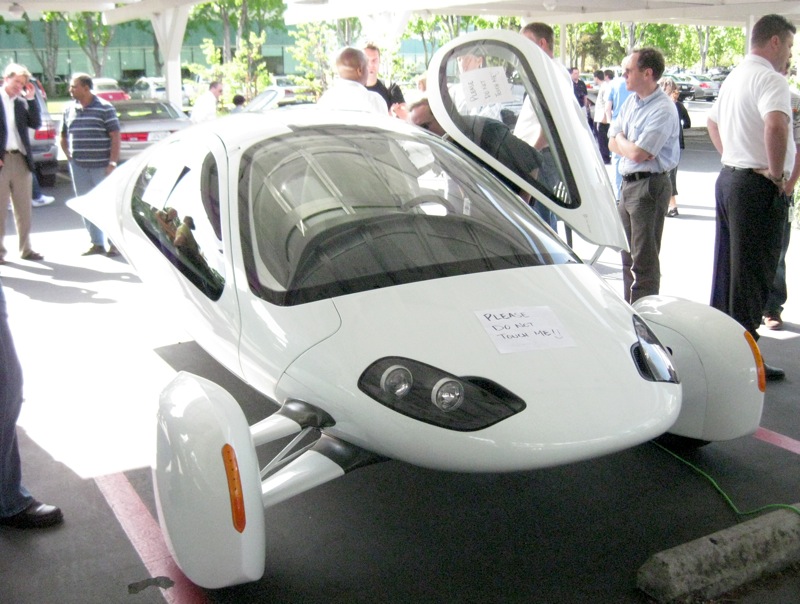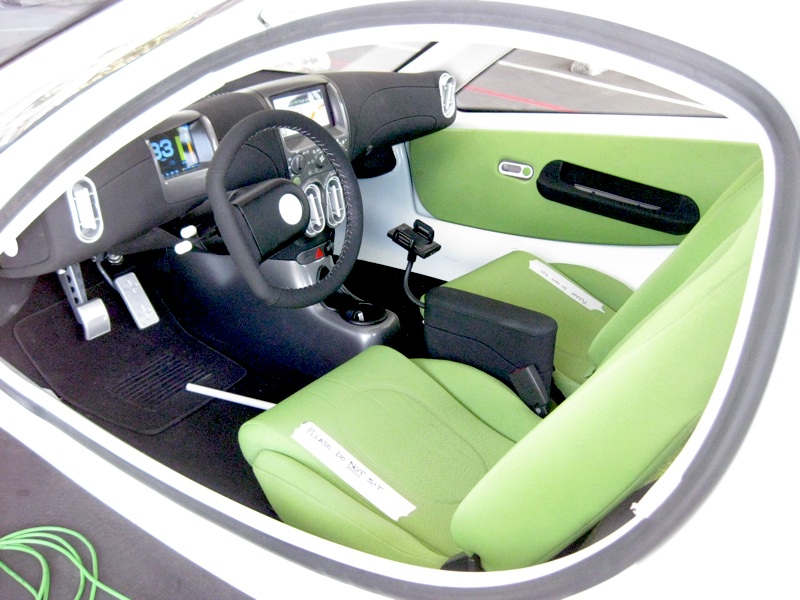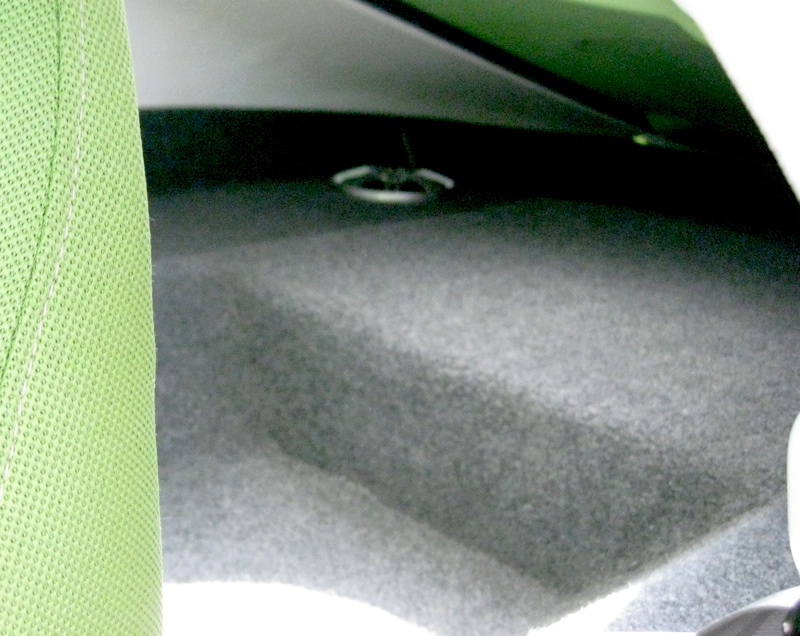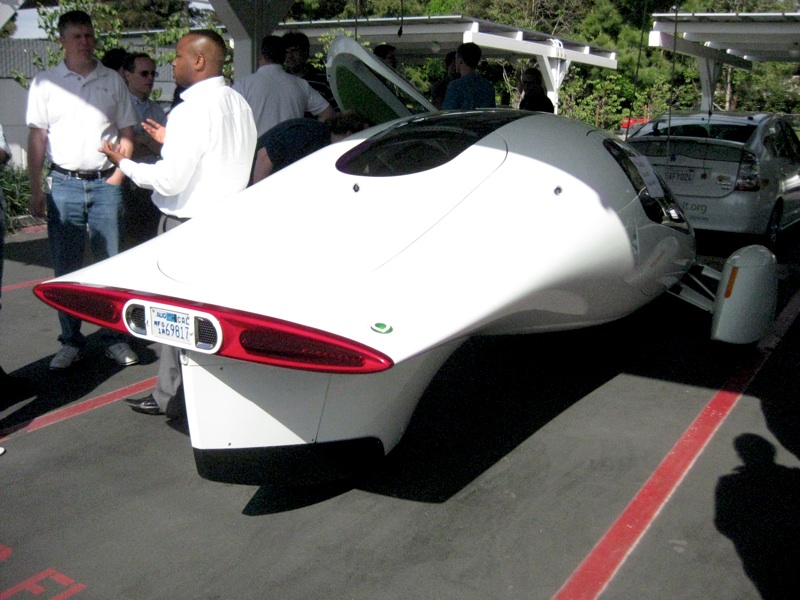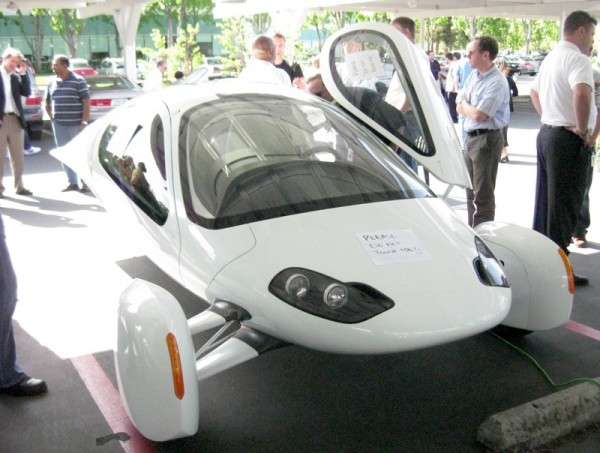 I am SO not surprised. This will be a bit ranty for me; it's taken from an email I sent to friends and lightly edited for tone so I don't get sued.
For those of you who don't know, Aptera was a manufacturer of a proposed electric car, and they've gone belly-up. From a recent article in Wired:
I am SO not surprised. This will be a bit ranty for me; it's taken from an email I sent to friends and lightly edited for tone so I don't get sued.
For those of you who don't know, Aptera was a manufacturer of a proposed electric car, and they've gone belly-up. From a recent article in Wired:
The truth is, Aptera always faced long odds and has been in trouble for at least two years. The audience for a sperm-shaped, three-wheeled, electric two-seater was never anything but small. It didn’t help that production of the 2e — at one point promised for October 2009 — was continually delayed as Wilbur ordered redesigns to make it more appealing to the mainstream. Aptera had a small window in which to be a first mover in the affordable EV space, and that window closed the moment the Nissan Leaf andChevrolet Volt hit the market. At that point, Aptera teetered on the brink of irrelevance. Eventually, though, Wilbur realized the 2e would never be anything but a niche vehicle and switched gears, something potential investors made clear must happen. They wondered about the market demand for such a funky vehicle and the long-term viability of the company if it didn’t expand its product lineup.I don't want to get off on a rant here, but let's be clear about this. I WAS GOING TO BUY THE CAR, but couldn't because Wilbur ordered a redesign. So his company was out $20K that went to Toyota (actually the Toyota was more expensive). A lot of other people had plunked money down for the car - more than 3000. They had to refund a non-trivial number of deposits. So Wilbur ordered a redesign of a vehicle FOR WHICH HE ALREADY HAD PREORDERS keeping it out of their hands. I read a prescient article, somewhere on an Aptera board or something, in which a ranting techie unexpectedly nailed it: Wilbur came in, changed the car to "prove" his auto design chops or something, and killed the company by derailing the ongoing production. Oh wait I've seen this movie: Tucker: The Man and His Dream. Now, I wasn't on the inside of Aptera, and I don't know what Wilbur faced, so I cut him some percentage of slack as an armchair quarterback. "That having been said," it seems clear that a driveable electric vehicle was delayed to market for reasons as ridiculous as enabling users to go through a drivethrough.
For months we have been receiving important feedback from you, our depositor community, and we have come to realize there were flaws in our initial product assumptions — specifically as it pertains to satisfying the needs of real-world consumers. Our greatest degree of learning came just a few months ago when we asked all of you to participate in a brief survey. This critical piece of research requested insights about your expectations for our company and our products, and we discovered a notable disconnect between our product plan and realistic expectations. Some modifications had to be made. For example, you helped us realize that some trade-offs for convenience (like being able to grab a burger in a drive-thru) might be necessary to make the ownership experience more palatable, even if it cost us a couple tenths of a point on our drag coefficient.Yes, the Aptera should have been able to receive a burger at a drive through. But at the mythical 300mpg why didn't you just SELL ME THE DAMN CAR and iterate on the next version. Heck, the first Prius was butt-ugly, not the gorgeous (and spacious) Kensington blue mouse I currently drive. No, you don't want to sell a car that will catch fire or anything, but you can't fix everything - and if you try, you lose. The best is the enemy of the good. And the marketing language we see above is classic, CLASSIC spindoctoring which sounds SO similar to the "we've made our decision and we're going to stick to it no matter whether it really makes sense" situations that I *am* personally familiar with. Interestingly, I've heard similar stories about tech leaders who focus on the appearance of their product to investors ... or, sometimes, just its appearance. I don't mean Steve Jobs focusing on pixels in icons because he wanted the experience of his product to be perfect; there are some wannabe Steve Jobsen clients-from-hell in the Valley who focus on the pure appearance of the product and not what it actually did or how it affected users - and things always get derailed as a result. Worrying about whether consumers will like the door of your car is appearance. Worrying about what investors will think about the marketability of your car is appearance. Sixty million dollars in potential gross revenue from three thousand prepaid customers was reality, and Wilbur threw that money on the floor. Aptera, you're missed. Your cars, which I never even got to drive, most of all. -the Centaur Pictured: the Aptera prototype on its visit to The Search Engine That Starts With A G. And no, I never got to drive it.
